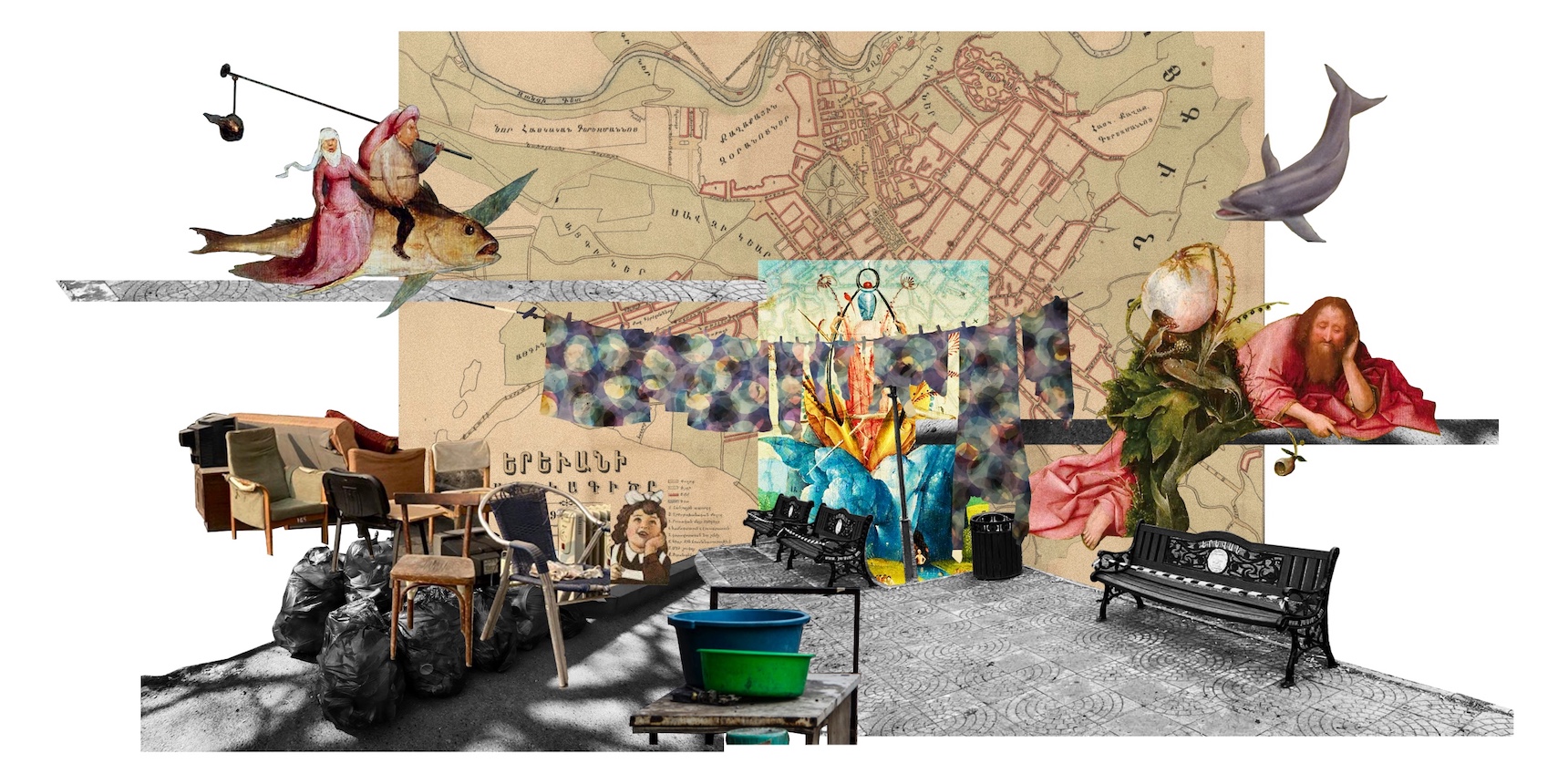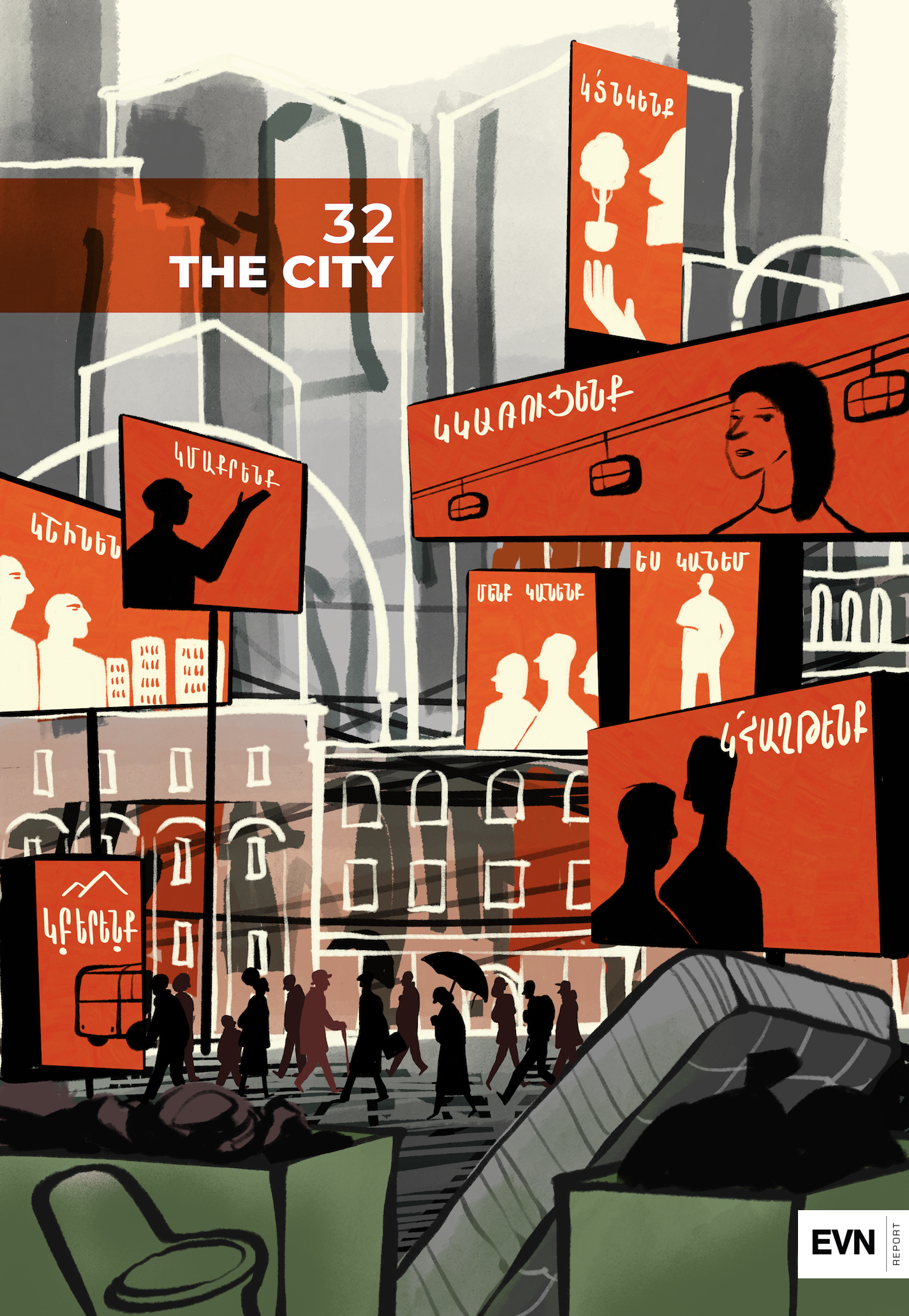

This is not about the Yerevan from the songs of Ruben Hakhverdyan or Forsh, or any song for that matter. This is also not about the Yerevan of anyone’s childhood, or the city in the backdrop of a snapshot where the facts are faded but sentiment maintains an outline.
Nostalgia is only a fickle bond between man and a city. It was dark but warm, it was cold but kind… watermelons chilled under running faucets, balconies converted into stuffy bedrooms are an irreversible part of our real estate. But what now? I’m afraid now, when we are the rhythm and rhyme of how Yerevan will be sung, it is time to check our own pulse, check Yerevan’s pulse and make sense of the near intolerable “cacophony” that seems to be the municipal election on September 17.
For about the million of us who live in this city, it has been clearly implied time and again that these are not just municipal elections. Yerevan election results are the omen every political force is looking for to set an agenda to. At least that is the general mode in the given political environment and has traditionally been the foregone assumption. Fair enough, it is the political reality in many countries, especially small ones like Armenia, where the capital is about one third of the electorate. Currently, Yerevan is home to 823,559 of 2,583,823* voters in the country. So the population of one city, be it the capital, is de facto viewed as and often acts as a pre-parliamentary election control group. Mind you the next national election in Armenia will be in 2026 and between now and tomorrow and more so at any moment between September 17 and 2026, everything can change. That has been the wisdom of the last couple of years.
Still, one of the political forces running in the election, the Mother Armenia coalition, in its utter confusion or political cunningness of sorts, has in fact decided to present a national election program, leading with the imperative for a complete regime change in the country, laying out their vision for the security architecture of Armenian and Artsakh, improvements to the Armed Forces, the lifting of the Artsakh Blockade, relations with China and Japan, minimum wage and pension increases…and all of these will be done from City Hall at 1 Argishti Street.
In the same vein but a different tone, during an interview on Public TV, Prime Minister Nikol Pashinyan, as an endorsement to his party’s mayoral candidate, former Deputy Prime Minister, current Deputy Mayor Tigran Avinyan said, “Vote for Civil Contract, vote for Avinyan, vote for stability in Armenia… we consider the capital the most important attribute to and the foundation of statehood and I believe that this election is in the context of protecting independence and sovereignty.”
Admittedly, our world is upside down. It has been since September 2020 and gravity seems to have reached out and grabbed us by the feet making our existence heavier. But this election does not have to be a conundrum. It is yet another exercise in democracy, granted by the independence we have already chosen. We are not saying “sovereignty” “or not” when electing what modern cities have by default – a mayor, a city council… These are not distinctions of sovereignty necessarily but they are most certainly the attributes of an organized urban society.
Having said this, five of the 14 political forces running for this election have not even bothered to present comprehensive programs at the time of publication of this article, a mere five days before Election Day. Our vote is to be hooked by a soundbite from an interview, a social media post: “Free transportation,” “Free school uniforms for all” or “We will use AI in governing the city”, this is on one hand. On the other end of the spectrum of what is the range of the campaign diversity, we are presented with a retro-futuristic vision of Yerevan, with the self-confidence that says “Let Us Change the Future,” #weknowhow/ #Մենք_գիտենք_ինչպես but is running on what can be described as soviet urbanistic arrogance and nostalgia. If ground transportation is not working out, we shall have cable cars hovering over the city, we shall bring back beloved landmarks, there will be fountains at congested intersections to control the microclimate and air filters at bus stops.
Granted, the “usual suspects” are included in most of the platforms – transportation, pollution, green spaces, construction, water and air quality… garbage disposal, landfills …obviously stating the obvious and the buzzword of this campaign season, “Smart City.” In other words, these are elections and we are getting a hefty share of everything that would be expected of a political campaign: big visions, buzzwords, a lot of promises, blame games, self-validation and/or atonement attempts of sorts, to reach out saying we are in this together — “Let us continue because we all need this”, “You tell us, we make it happen” — rivalry, smear campaigns… Seems right.
What we need to address more truthfully, however, is our fear of not making the “smart” choice and thereby reverting to the detriments of mass corruption, unapologetic transactional favoritism, vote rigging, usurpation of public property and power and unhindered transgressions on human rights. And the question here is, will we allow it again since we once tolerated it?
Dear 823,559 fellow voters, this would be the time to check our own pulse, our boundaries and standards, our tolerances and intolerances, our own aptitude for change and define our own needs. Do we stay in the right lane, while the city charges left and right under the banner of double digit economic growth? Do we wait for a city, left to thrive on greed and indifference for too long that will one day flood with both, wear us down and spit us out? Enough of us have barricaded ourselves in our homes in this increasingly Instagrammable city where the sidewalks are no longer for pedestrians but for cafes, scooter companies and for construction sites to close off for years. Enough of us have lost sleep to 24 hour business gains and rest to wildfire development to reminisce about leisurely promenades in parks. This fascinatingly convertible city has hosted thousands of immigrants and a record breaking number of tourists this year, but its resources are running thin and the time before it can no longer catch up with its own development is fast running out. It is no longer just about infrastructure and the other constants of urban settings, it is also already about how we can interact with it.
This city, this capital, needs resilience. This we know or feel to be true, at least instinctually. And resilience is a valid answer to the existential crisis many of us feel in response to this election. However, we can no longer afford to choose one “right” at the expense of the other, we have to choose everything that is good for us all at once and do so precisely because of the security concerns. It is a steep hill to climb and of course, it is a slippery slope. Despite the political rhetoric suffocating perceptions, this is a city, a social-economic-urban-cultural mechanism with many of its issues and solutions, sometimes in clear view, and with sufficient levers in our hands. The question is, can we make it work efficiently and cater to not only the needs and rights of its residents but to the economy of the country and maybe eventually also its security?
Now, when we are the rhythm and rhyme of things to come, not a control group but hopefully a group in control, maybe we don’t just air grievances but invest time and effort to help make and keep things “right” regardless of who serves at Argishti 1. Any administration left to its own devices will likely ponder and eventually be overwhelmed like many of us now.
Magazine Issue N32
The City


Yerevan, the capital of Armenia, where one third of the population lives today, has borne witness to sweeping social, political and economic changes for centuries. It is considered the pulse of the nation, where critical decisions on the future of the country are formulated, where promises are made and sometimes broken, a city that has hosted immigrants, emigres and tourists, an urban center where gentrification and rapidfire development threaten its relationship with its residents, when a municipal election becomes more about national issues, instead of urban needs and requirements. This month’s magazine issue entitled “The City” features articles that delve into the nuances of municipal elections, present the political forces running for city council and the history and lost stories of an ancient capital.

